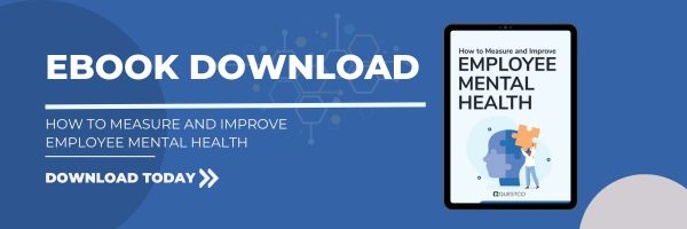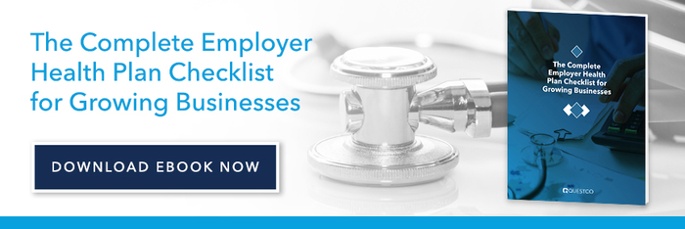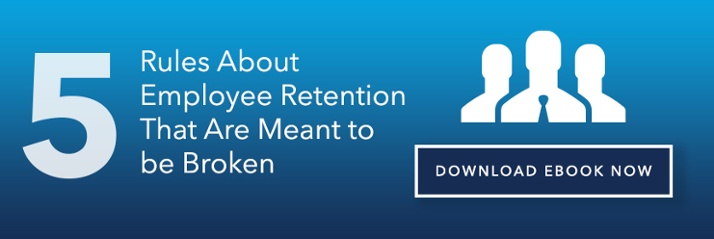Topic Employee Engagement
11 Approaches to Improve Employee Engagement and Wellness

October 30, 2024 | By Questco Companies

Businesses are realizing that their most valuable asset is their people, which has turned improving employee engagement and well-being into a strategic priority. Companies that prioritize wellness initiatives tend to see happier employees, lower turnover rates, and increased productivity. But how do you effectively nurture your workforce? The key lies in innovative approaches that cater to the holistic needs of your employees.
This shift acknowledges employees' diverse needs and reflects an understanding that wellness can be achieved in multiple ways. When employees feel nurtured and valued, they're more likely to be engaged, committed, and aligned with company goals.
In this blog post, we'll explore cutting-edge strategies that business owners and HR professionals can adopt to enhance workplace engagement and well-being.
Innovative Ways to Improve Employee Engagement and Wellness
Employees will feel more engaged with their company and roles when they feel good and that their company supports them.
Let’s look at some of the ways companies can implement initiatives that support well-being and engagement.
1. Instill a Culture of Productivity
Creating a productive work environment goes beyond setting goals and deadlines—it's about fostering a culture that promotes growth and collaboration. When employees share a common understanding of the company's mission and values, they feel a stronger connection to their roles. This connection can be cultivated through regular team meetings and outreach programs that emphasize shared goals and objectives.
To instill a culture of productivity, organizations must encourage cross-departmental collaboration and open dialogue. By promoting transparent communication and providing platforms for idea-sharing, companies can harness the collective potential of their workforce. This collaborative approach enhances productivity and fosters a sense of belonging and community among employees.
Furthermore, recognizing individual contributions and celebrating team achievements reinforces a culture of growth. When employees see their efforts being acknowledged, they're motivated to strive for excellence. This sense of accomplishment fuels a positive cycle of productivity and engagement, benefiting both the employees and the organization as a whole.
2. Flexible Work Arrangements
In a world where work-life balance is increasingly prioritized, offering flexible work arrangements can significantly impact employee well-being. Providing options for remote work and flexible schedules allows employees to tailor their work environments to suit personal and professional needs. This flexibility can lead to increased job satisfaction and reduced stress levels, as employees can better manage their time and responsibilities.
Implementing flexible work arrangements requires trust and accountability. Employers must trust their employees to deliver quality work while giving them the autonomy to manage their schedules. Conversely, employees must remain accountable for their responsibilities and commitments. When both parties uphold these principles, flexible work arrangements create a more motivated and engaged workforce.
3. Health and Wellness Programs
Comprehensive health and wellness programs helps support employees, fulfilling the baseline needs to create effective employee engagement strategies. These initiatives encompass physical fitness, mental health support, and overall well-being, addressing the diverse needs of employees.
Physical health initiatives, such as gym memberships or fitness challenges, encourage employees to prioritize their health and maintain an active lifestyle. Meanwhile, mental health support is equally crucial, especially in today's challenging times. Ensuring your healthcare provides access to counseling services, stress management workshops, and mindfulness programs helps employees cope with stress and build resilience.
4. Professional Development Opportunities
Investing in professional development opportunities is a powerful way to enhance employee engagement and well-being. By offering continuous learning and career advancement programs, companies empower employees to take ownership of their growth and development. This investment not only benefits the employees but also contributes to the organization's long-term success.
Training programs, workshops, and mentorship initiatives provide employees with the skills and knowledge needed to excel in their roles. These opportunities foster a culture of learning and innovation, as employees are encouraged to explore new ideas and approaches. When employees feel supported in their professional growth, they're more likely to stay motivated and committed to the company.
5. Provide Robust Technology
Providing employees with robust technology is essential for optimizing productivity and engagement. Access to qualitative resources and tools empowers employees to perform their tasks effectively and efficiently. By investing in technology, companies demonstrate their commitment to supporting employees in achieving their goals.
Equipping employees with the right tools enhances their ability to collaborate and communicate seamlessly. Advanced software solutions, cloud-based platforms, and cutting-edge hardware enable employees to work smarter and more collaboratively. When employees have access to the latest technology, they can focus on delivering high-quality work without unnecessary obstacles.
6. Offer Quality Benefits
Providing quality healthcare and retirement benefits is a fundamental aspect of supporting employee wellness because it removes the cost concerns that surround their health and futures. These benefits offer employees a strong foundation of support, enabling them to prioritize their health and well-being. When employees feel secure in their ability to care for themselves and their families, they're more likely to be engaged and focused at work because you remove a key distraction.
Comprehensive healthcare plans that cover medical, dental, and vision services ensure that employees receive the necessary care to maintain their health. Preventive care options, such as regular check-ups and vaccinations, promote overall well-being and reduce the risk of illness. By prioritizing healthcare, companies demonstrate their commitment to their employees' long-term wellness.
Retirement benefits, such as 401(k) plans or pension schemes, provide employees with financial security for the future, encourage employees to plan for their retirement, and alleviate financial stress.
7. Trust Employees in Their Roles
Trust is a foundational element of a healthy workplace culture. By trusting employees in their roles, organizations empower them to take ownership of their work and make meaningful contributions. This trust fosters a sense of autonomy and responsibility, leading to increased engagement and job satisfaction.
When employees are trusted to make decisions and take initiative, they feel valued and respected. This empowerment encourages them to innovate, problem-solve, and explore new ideas. Employees who are trusted in their roles are more likely to take ownership of their projects and deliver high-quality results.
Additionally, trust within the workplace creates a positive and supportive atmosphere. Employees feel comfortable sharing their thoughts and ideas, knowing that their contributions are valued. This openness fosters collaboration and teamwork, as employees work together to achieve common goals.
8. Implement Recognition and Reward Systems
Recognition and reward systems are powerful tools for motivating and engaging employees. By regularly acknowledging and rewarding employee achievements, organizations can foster a culture of appreciation and motivation. These systems provide employees with tangible recognition for their hard work and contributions.
Recognition can take various forms, from verbal praise to formal awards or bonuses. Publicly acknowledging employees' accomplishments reinforces their sense of value and boosts morale. When employees feel appreciated, they're more likely to remain engaged and committed to the company's success.
9. Open Communication Channels
Maintaining open communication channels is essential for fostering a transparent and inclusive workplace culture. By encouraging feedback through surveys and open forums, organizations ensure that employees feel heard and considered in decision-making processes. This transparency builds trust and strengthens the employer-employee relationship.
Regular feedback sessions provide employees with the opportunity to share their thoughts, concerns, and suggestions. By actively listening to employees' feedback, organizations can identify areas for improvement and implement positive changes. This feedback-driven approach empowers employees to contribute to the organization's growth and development.
10. Emphasize Work-Life Balance
Promoting work-life balance is crucial for ensuring employee well-being and engagement. Encouraging practices that support a healthy work-life balance, such as designated "no meetings" days or enforced vacation time usage, helps employees recharge and maintain their productivity.
Designated "no meetings" days allow employees to focus on deep work and uninterrupted tasks. By reducing the number of meetings, employees have more time to concentrate on their priorities and achieve their goals. This approach also reduces the cognitive load associated with constant meetings, leading to improved focus and creativity.
Encouraging employees to take vacation time and disconnect from work is essential for preventing burnout and promoting mental well-being. By encouraging employees to prioritize self-care and leisure, organizations demonstrate their commitment to their employees' overall happiness and health.
11. Work with an HR Partner
By outsourcing HR functions, organizations can free up time for internal teams to focus on strategic initiatives and employee support. That can put leaders in a position to create conducive, productive environments that make employees feel secure in their roles.
HR partners also offer cost-effective solutions for healthcare and retirement benefits, ensuring that employees receive quality support. By leveraging their expertise and resources, HR partners help organizations design comprehensive wellness programs that address employees' diverse needs.
They also act as crucial guides and provide valuable insights on best practices for employee engagement and wellness. Your organization can more easily stay up-to-date with industry trends and regulatory requirements, ensuring compliance and continuity.
Support Your Staff's Well-Being with Questco
Questco is an experienced HR partner dedicated to making your employees' well-being a priority. With a comprehensive suite of services and solutions, Questco empowers organizations to create a thriving and supportive work environment.
From designing wellness programs to providing access to quality benefits, Questco offers the tools and expertise needed to support your most valuable asset—your people.
Reach out today to learn more about how Questco can help you improve your employee engagement and wellness!







